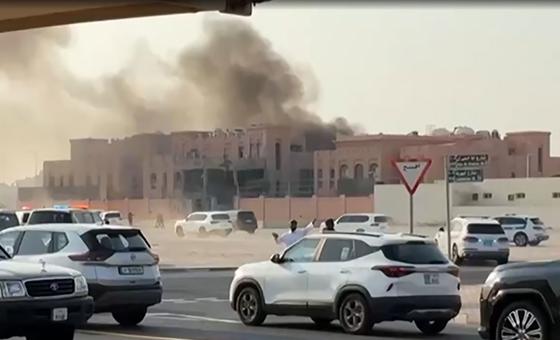Israeli Strike on Hamas Leaders in Doha Signals New Regional Tensions
International affairs correspondent with extensive experience covering global politics, diplomacy, and cross-border issues

The recent Israeli missile strike on Hamas leaders in Doha has sparked international concern, potentially marking a new and dangerous phase in Middle Eastern geopolitics. The attack has prompted an emergency session of the UN Security Council, raising questions about regional stability and diplomatic tensions.
A Dramatic Turn of Events
In an unexpected escalation, Israel launched a missile strike targeting Hamas political leaders in Doha, Qatar. This bold move has been widely condemned for breaching Qatari sovereignty and has drawn sharp criticism from global powers. The strike, which took place on Tuesday, has been described by many observers as a significant and potentially perilous shift in the ongoing Israeli-Palestinian conflict. The city of Doha, known for its diplomatic neutrality and as a hub for international negotiation efforts, now finds itself at the center of a geopolitical storm.
UN Security Council's Urgent Response
In response to the strike, the UN Security Council convened an emergency session to address the implications of Israel's actions. The council's discussions underscored the severity of the situation, with the UN's political affairs chief emphasizing the threat posed to regional peace and stability. This development jeopardizes the ongoing international mediation efforts aimed at resolving the conflict in Gaza and complicates the delicate task of negotiating the release of hostages currently held in the region.
Implications for Regional Peace
The attack has not only intensified the Israeli-Palestinian conflict but has also introduced new complexities into Middle Eastern diplomacy. Qatar's position as a mediator has been compromised, raising concerns over the future of peace talks. Analysts suggest that this incident could lead to a broader diplomatic crisis, as regional alliances are tested and international relations strained. The strike has also brought to the fore issues of sovereignty and international law, as nations grapple with the broader implications of such unilateral military actions.
Potential Paths Forward
As the international community digests the implications of the strike, questions loom about the next steps in the region. Diplomatic channels are likely to be strained, with calls for restraint and renewed dialogue. However, the path to de-escalation remains fraught with challenges. The incident underscores the fragile nature of peace in the Middle East and the urgent need for comprehensive diplomatic strategies that address both immediate concerns and long-standing grievances.
About Alex Rivera
International affairs correspondent with extensive experience covering global politics, diplomacy, and cross-border issues